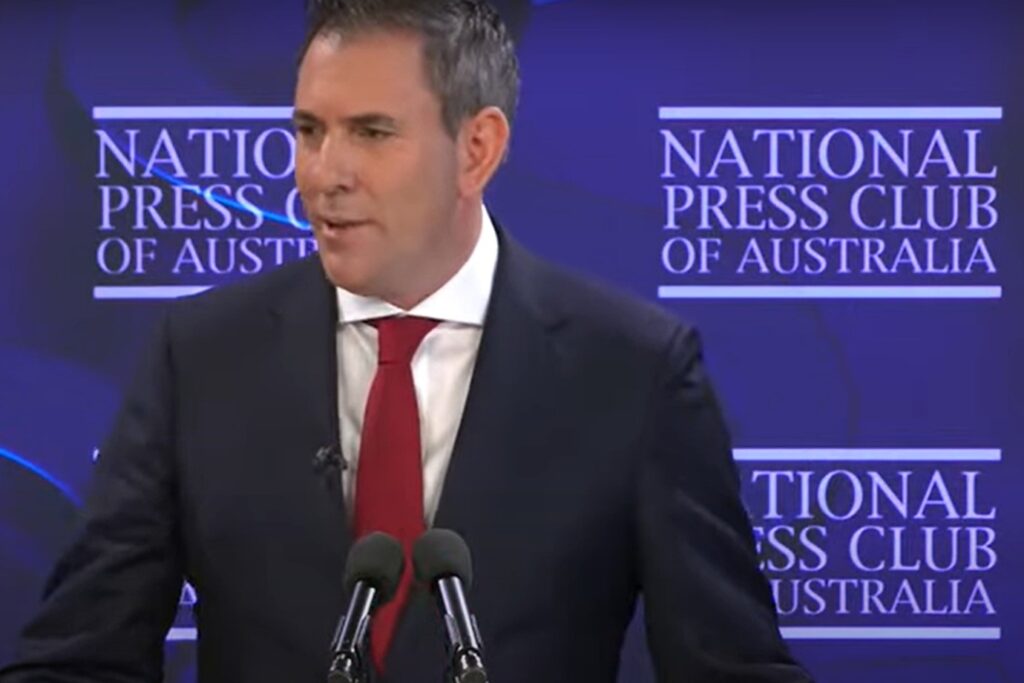Treasurer Jim Chalmers has paid tribute to the historical significance of Australia’s three most powerful economic institutions now being led by women economists.
“It is a source of considerable pride in our government that we have women leading the Reserve Bank, the Productivity Commission, the Treasury, in each of those cases, for the first time in the history of those economic institutions,” Chalmers said at the National Press Club.
“I wondered if you wouldn’t mind putting your hands together for Jenny [Wilkinson], Danielle [Wood], Michele [Bullock], Gina [Cass-Gottlieb] and the progress that we’ve made together.”
Last week, Jenny Wilkinson’s appointment as Treasury secretary marked the first time a woman has led the Treasury in its 124-year history. She is one of Australia’s most distinguished and experienced economists and public servants.
In national economic leadership, Wilkinson joins Michele Bullock, the current governor of Australia Reserve Bank. Wilkinson became the first woman in the influential role in its 63-year history when she was appointed in 2023.
That same year, Treasurer Jim Chalmers appointed Danielle Wood as the Chair of the Productivity Commission, which holds a term of five years.
At the time, she was CEO of the Grattan Institute and by stepping into the new position became the first woman to lead the commission or any of its predecessor agencies that stretched back for more than a century.
Chalmers also made mention of Gina Cass-Gottlieb, who commenced her 5-year appointment as Chair of the Australian Competition and Consumer Commission (ACCC) on 21 March 2022. With this position, she became the first woman to serve as chair, following her work as partner with Gilbert + Tobin for more than two decades.
All of these women have been the first in their economic leadership positions, and their collective leadership at this time in the nation’s history is worthy of attention.
The world of economics is still stubbornly male-dominated as pointed out recently by Duygu Yengin from the University of Adelaide.
Women make up only 17 per cet of economics professors, with 83 per cent being men. Women also make up only one-third of secondary pupils studying economics, and in the private sector, women economists are roughly one in three.
In the rest of his Press Club address, Chalmers went on to argue the nation’s future prosperity depends on creating a more productive economy and implementing tax reform, noting that the leadership decisions in this decade will be “defining” for living standards.
“Australia has to recognise that this is genuinely a defining decade. The decisions we make in the 2020s will determine the sort of living standards and intergenerational justice that will have in the decades to come,” Chalmers said.

